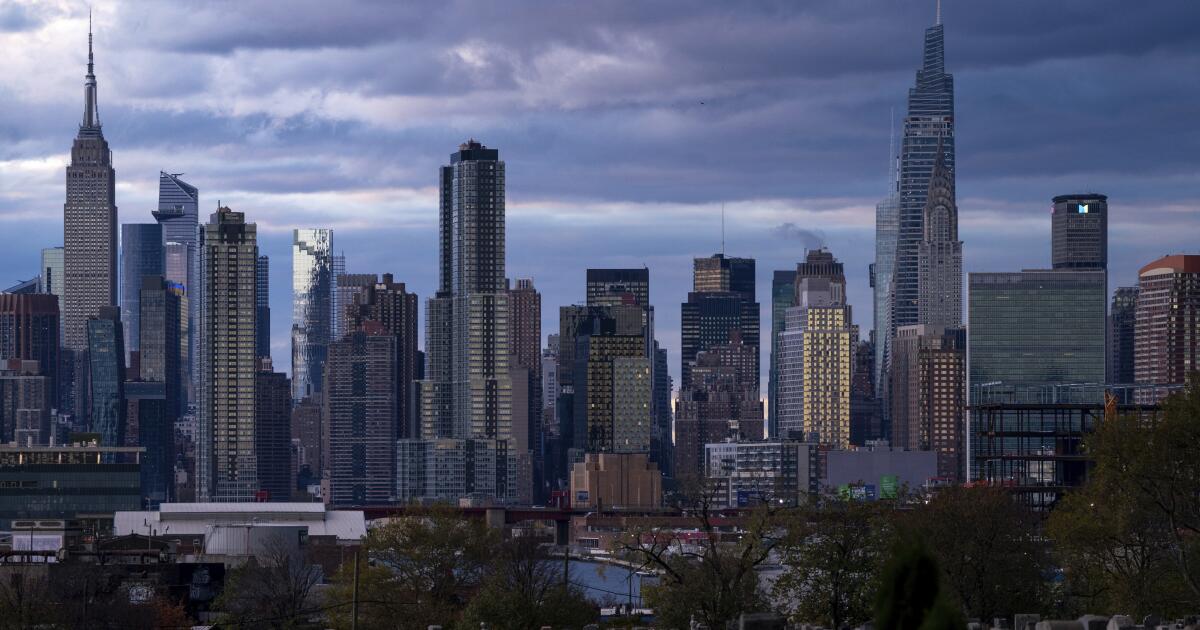The Supreme Court on Tuesday turned down a major property-rights challenge to rent control laws in New York City and elsewhere that give tenants a right to stay for many years in an apartment with a below-market cost.
A group of New York landlords had sued, contending the combination of rent regulation and long-term occupancy violated the Constitution’s ban on the taking of private property for public use.
The justices had considered the appeal since late September. Only Justice Clarence Thomas issued a partial dissent.



In a world with infinite resources maybe. But consider places like NYC where there is no more land to build on and agencies with money gobble up whatever land/buildings become available before an enterprising agency can come in to shake up the market and you’ll start to realize one of the major failings of capitalism.
Capitalism always favors the rich at the expense of the poor. The only way that the poor can prosper is at the good will of the rich, which is something that exists in such small quantities that it may as well not exist at all.
For clarity, I believe in socialism, and live in Australia, arguably one of the more successful social democracies. I’m trying to highlight how capitalism has some massive gaps when it comes to implementation.
Interestingly, in Australia we have no rental controls, and the market just works. Prices rise and fall based on the demands of the market. At times, renting in Australia becomes unaffordable for many, and it’s all over the news, and people try to address the issue. But I don’t know that I’ve ever heard rental price controls being offered as a solution. The more common proposed solutions are to: build more affordable houses in newly created suburbs further from the city, increase public transport options to the city making outlying suburbs more viable, all of which provide downward pressure on the rental prices in the popular city districts. As construction booms, the rental market softens.
(I copy/pasted this comment from its original location as the person I replied to deleted their comment)
Your minimum wage is $23.23 USD/hour. Ours is $7.25/hour.
You don’t have rent control but you DO have a government that drives wages with regular review and increases determined by the FWC. Our wages have practically stagnated for 30 years. It’s been 15 since we last saw a minimum wage increase.
You really can’t compare Australia’s housing situation to the US’s because of the massive economic differences.
Sounds like you’re already well aware of the solution to this problem. Wage reform. Having said that, changing wages just lifts the affordability amount for lower income earners, which will in turn put upward pressure on rental prices. Demand won’t change, only how much people can pay. I’m not against regulation on rentals, it just seems very anti-American to do it that way?!
Correct
Then NYC needs to manage itself better by purchasing property and knocking shit down to build larger buildings with more tenements in the same footprint. That “flavorful” 2 story with 12 apartments in Manhattan? Bulldoze that clunker and build a new 20 story with 120 apartments in it!
Then you keep doing it. NYC buys property, knocks down whatever tiny thing is there and rebuilds it to 10 or 20 times the previous capacity. Lather, Rinse, Repeat.
All that’s happening with their current scheme is that the rent controlled apartments are being subsidized by everyone who lives in the market rate apartments so that they don’t damage the “character” of certain areas. The only winners are the people in the relatively few available rent controlled apartments and they’re only winning because they’re literally taking money from other people.
It’s not sustainable.